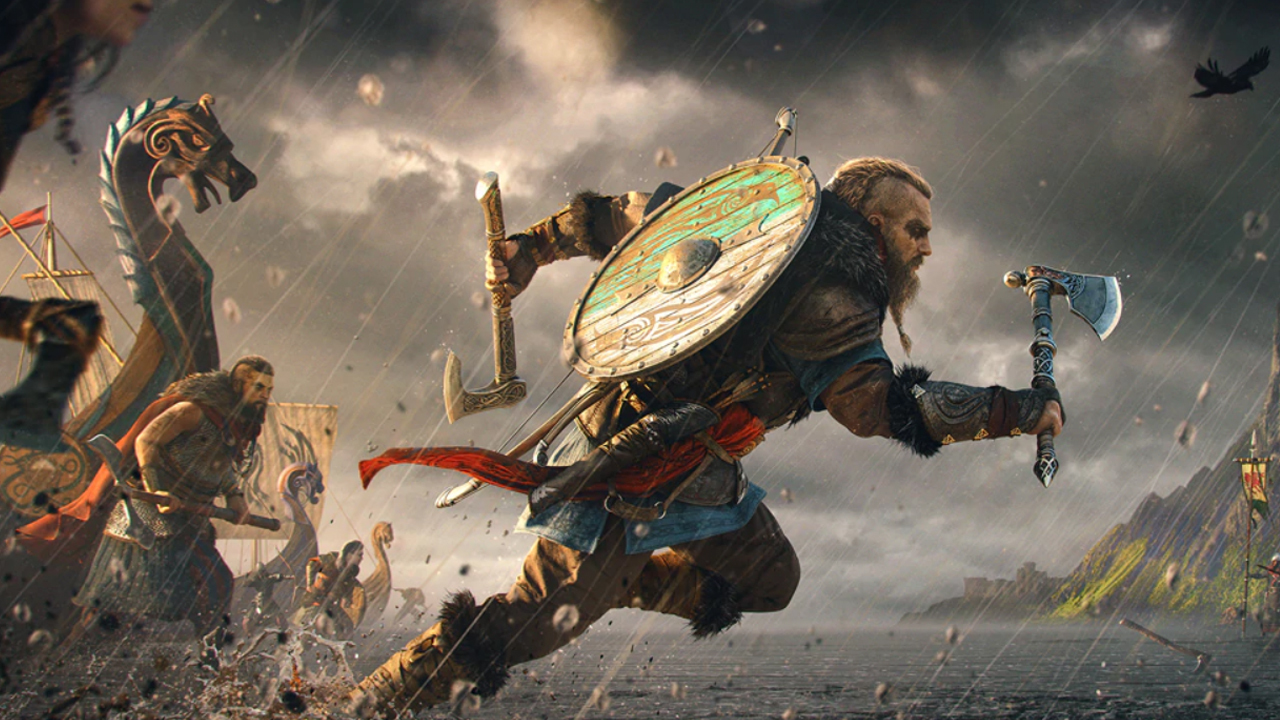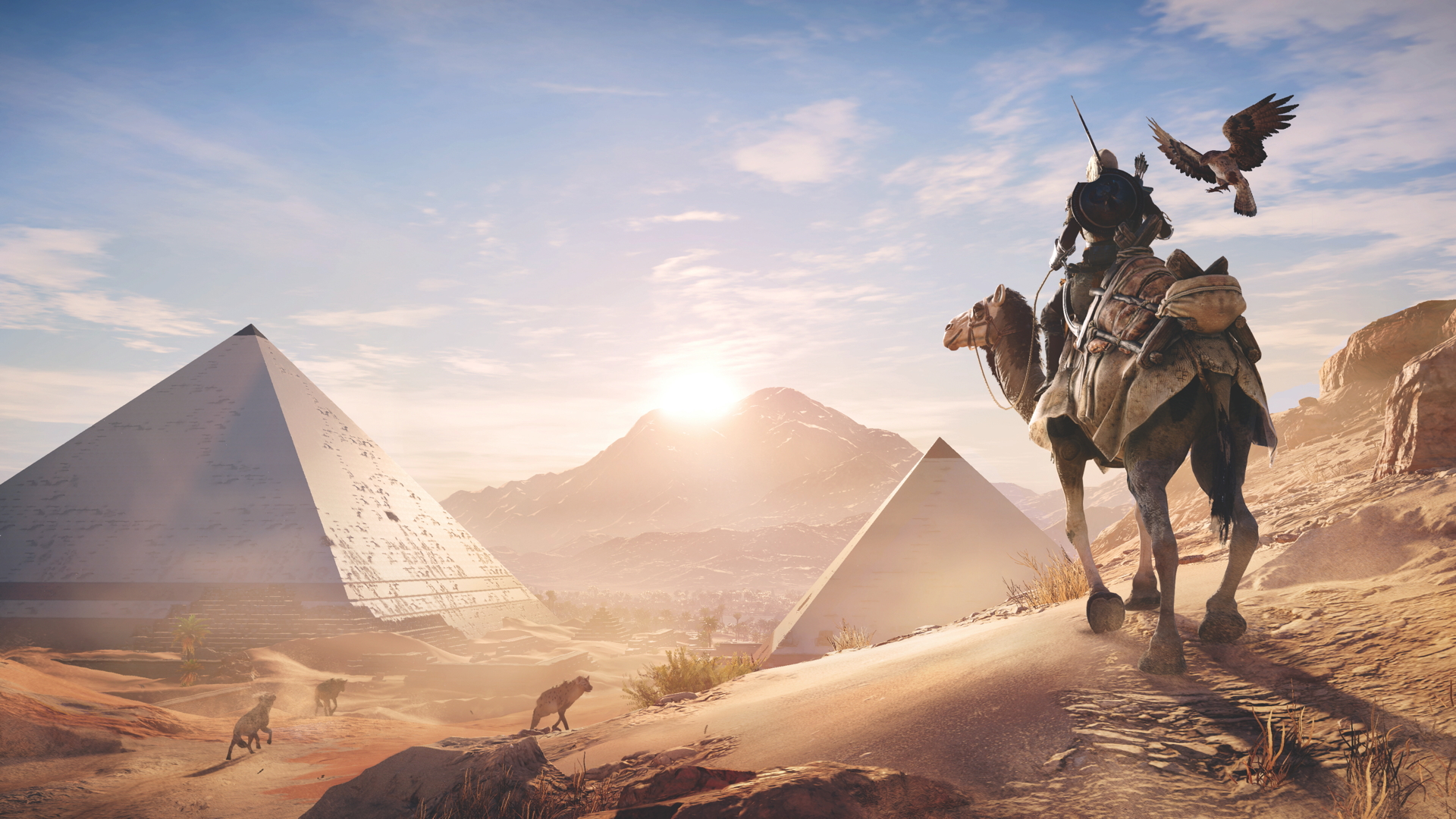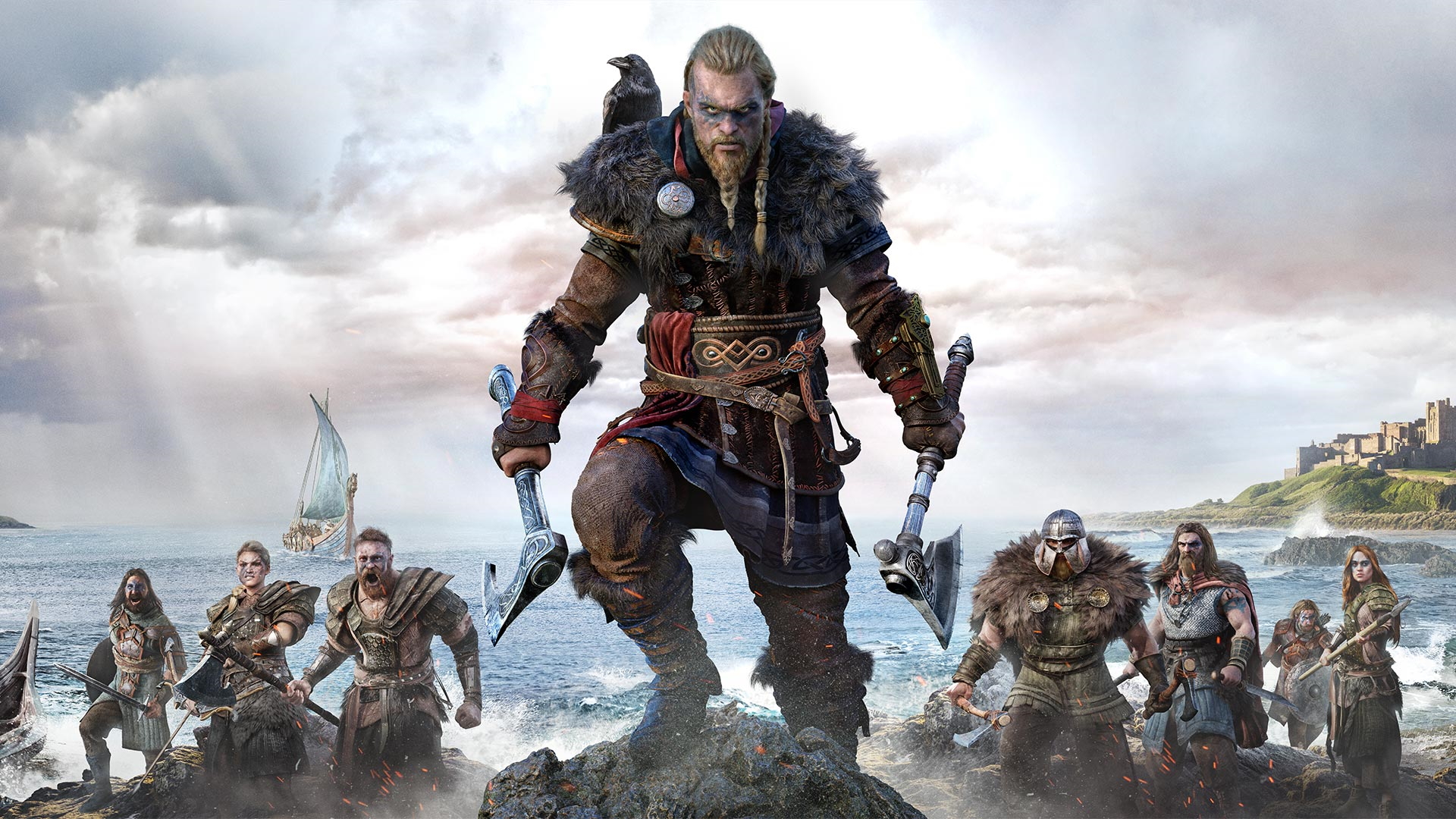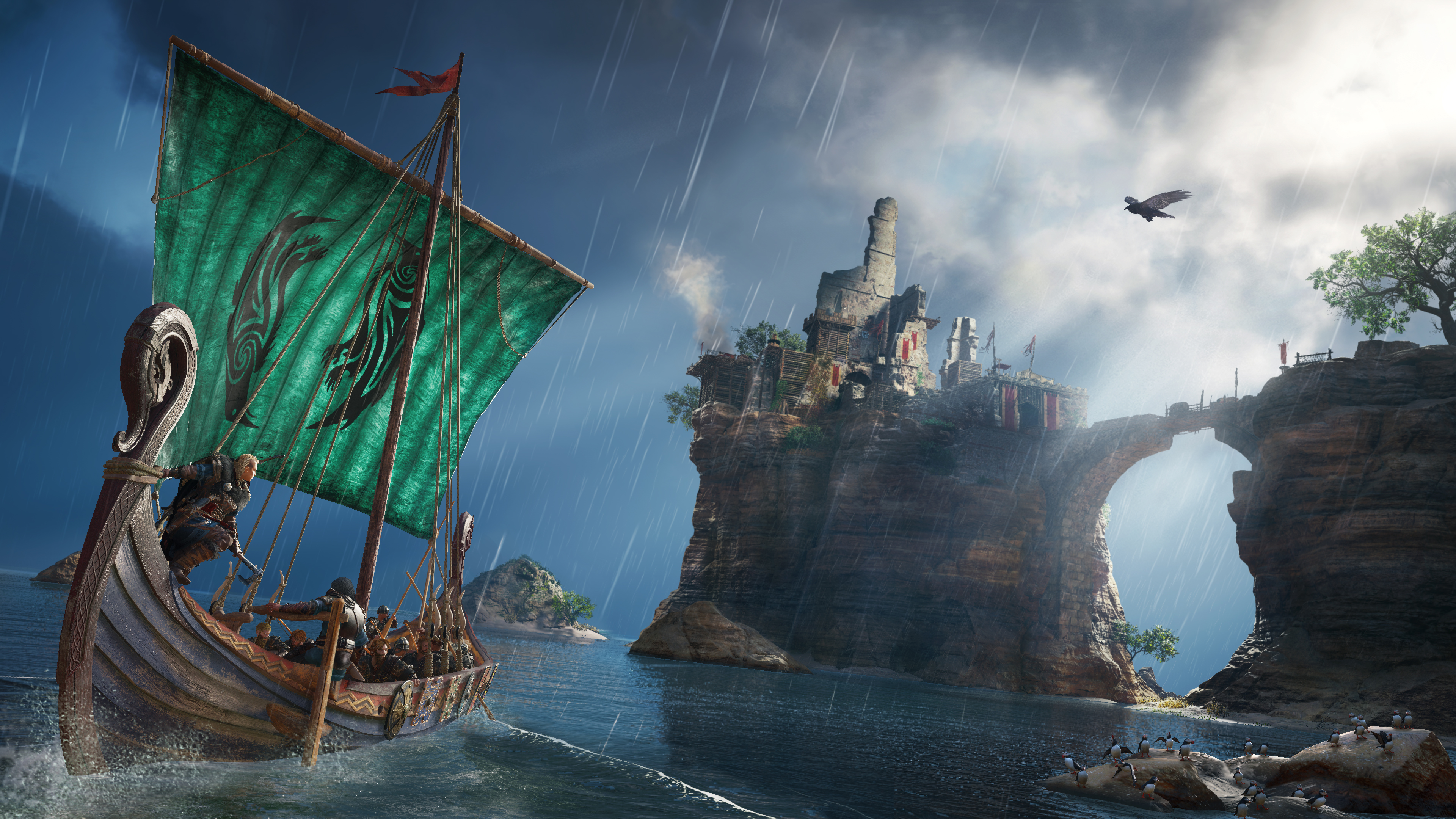Assassin's Creed Valhalla is right to build on the RPG elements that have brought the series forward
It's a great thing Assassin's Creed Valhalla looks set to build on the series' RPG foundations

Choice. Ah, what a concept. In a world where our choices are currently a little more limited than we'd like – beyond what to watch next on Netflix, or what game on the shame pile finally gets its time in the spotlight, of course – games that offer us almost infinite choices should be particularly celebrated right now; and those that really lean into it even more so. Assassin's Creed Valhalla looks set to continue the series' pivot, away from a foundation of action that the games were built upon and into the embrace of the RPG. For a series that established itself on cheeky lotharios and hooded figures brandishing hidden blades, Assassin's Creed has done a lot in the past few years to embrace the value of choice.
Somehow, by taking the series further back in time, Ubisoft managed to bring its long-running series into the present. Starting with 2017's Assassin's Creed Origins, set in the dusty sands of Ancient Egypt, Ubisoft started to tweak a core gameplay loop that had remained largely the same since the series made its debut a decade earlier. When the series took a two-year break in 2015, following the release of Assassin's Creed Syndicate, it came back with more than just sand between its toes. Suddenly there was character levelling, skill trees, a completely new combat engine, crafting, and an extensive loot system with colour-coding to rival Destiny.

Parts of these features had appeared in Assassin's Creed games before, of course, but Origins took them – and the series – to a whole new level. The game used the level and quality of your gear to propel you through the game, with enemies bearing their own levels helping to gate and guide your progression. Side quests were now used to boost your rank and gain crafting components, and the hunt for newer and more exotic gear became an essential pastime for any assassin in training. Your historical playground became a mess of map icons luring you into every location you could possibly find, bringing the worlds to life in a way that conjured comparisons to CD Projekt Red's The Witcher more than the Assassin's Creeds that came before.
Assassin's Creed Origins felt like a huge left turn for the series, but then came Assassin's Creed Odyssey just a year later. Developed alongside Origins, and thus benefiting from all of Origins' own RPG leaps, Odyssey performed the biggest leap of faith in Assassin's Creed's history by diving headfirst into the role-playing with fully voice-acted dialogue, branching story paths, and multiple endings.
The game also featured a duo of playable protagonists but, unlike Syndicate's Jacob and Evie Frye, Kassandra and Alexios were built as mirror images. You pick one from the start, and they become your Odyssey hero to be sculpted and personalised along your journey through Ancient Greece. Assassin's Creed Odyssey took the reinvention offered in Origins and refined every single element of it, delivering the finest RPG Ubisoft has created to date.
For Valhalla

So here we stand, in the shadow of the decisions we made with Kassandra or Alexios, on the cusp of something new. It's been another two-year break for the series, and we now have Assassin's Creed Valhalla on the near horizon – due at the end of 2020 for current and next-gen consoles the PS5 and Xbox Series. From everything we have seen and heard so far, it looks like Valhalla is going to take the best elements of Origins and Odyssey and runs with them.
Valhalla's setting in the English Dark Ages, for one, easily lends itself to build at least on the combat system that underpins the action of the series nowadays. In Odyssey, you could build your skills along three skill trees – hunter, warrior or assassin – to tweak how you liked to fight, with bows complimenting everything from daggers to heavy blunts. Combat used a mixture of dodges, parries, light and heavy blows, and even a little bit of magic, which became a dance of blood and chaos when mastered. It's a system that will lend itself to the weaponry of the Viking era: the giant axes, hatchets, and spears are all already part of that combat system. Shields look to be making a comeback too – something that was missing from Odyssey, but worked well with Bayek in Origins. And that's not to even mention the longships, which will no doubt build on the naval combat that Ubisoft has been honing since Assassin's Creed 4: Black Flag.
Sign up to the GamesRadar+ Newsletter
Weekly digests, tales from the communities you love, and more

But, more importantly, Assassin's Creed Valhalla needs to be unafraid of handing you the same freedom of choice we were afforded in Odyssey. The option of playable characters, followed by the weaving, branching narrative that let you behave how you wanted – and have sex with whoever you wanted – was a refreshing change for the series. My totally horny Kassandra, with a lover in every port, was a character I still greatly cherish – fiery, focused, always willing to help, and utterly my own.
If Valhalla had decided to ditch the dialogue trees and multiple ending structure for something more old-school, more linear, it might have played better with the series' long-running, and immensely deep, canon, but it would have unpicked the progression it made with representation, with storytelling, and ultimately with character building.
Of course, Ubisoft has in a way done that itself to some extent with the Odyssey DLC. With Odyssey's Legacy of the First Blade DLC, your character is forced into a heterosexual relationship and bears a child, which goes some way to undermine the sexual freedom the game has offered you until that point. There were some attempts to rectify the mistake after community outcry, but Valhalla should reinforce Ubisoft's support for the LGBTQ stories and allow the same sort of freedom offered in Odyssey.

Thankfully, it looks like Assassin's Creed: Valhalla is going to do just that. A choice of playing a male or female version of its protagonist, Eivor, that's fully customisable from hair and gear to tattoos and warpaint makes me breathe a sigh of relief. And it looks like the game will lean even more into the choice/consequence dilemma as your influence extends beyond romance and battles to political allegiances too. You're about to be in charge of protecting your clan's entire future as you journey across the North Sea to England.
Ultimately, Ubisoft has transformed this series into a historical playground. It's not just about a hidden blade wielded by someone in a hood, it's about putting you at the centre of history. Focusing on tweaking and improving the RPG elements that have been core to the last two Assassin's Creed games only serves to highlight that ideal, offering you the option to play around with your character and the way that you can interact with that history.
If Valhalla had moved back to a more traditional Assassin's Creed experience, it would certainly be a detriment to the series, but thankfully Ubisoft is on the right track.
If you're ready to reserve your copy for launch, be sure to check out our roundup of the best places to pre-order Assassin's Creed Valhalla, for the details on every edition.

Sam Loveridge is the Brand Director and former Global Editor-in-Chief of GamesRadar. She joined the team in August 2017. Sam came to GamesRadar after working at TrustedReviews, Digital Spy, and Fandom, following the completion of an MA in Journalism. In her time, she's also had appearances on The Guardian, BBC, and more. Her experience has seen her cover console and PC games, along with gaming hardware, for a decade, and for GamesRadar, she's in charge of the site's overall direction, managing the team, and making sure it's the best it can be. Her gaming passions lie with weird simulation games, big open-world RPGs, and beautifully crafted indies. She plays across all platforms, and specializes in titles like Pokemon, Assassin's Creed, The Sims, and more. Basically, she loves all games that aren't sports or fighting titles! In her spare time, Sam likes to live like Stardew Valley by cooking and baking, growing vegetables, and enjoying life in the countryside.


